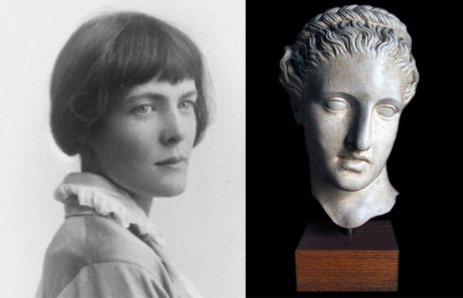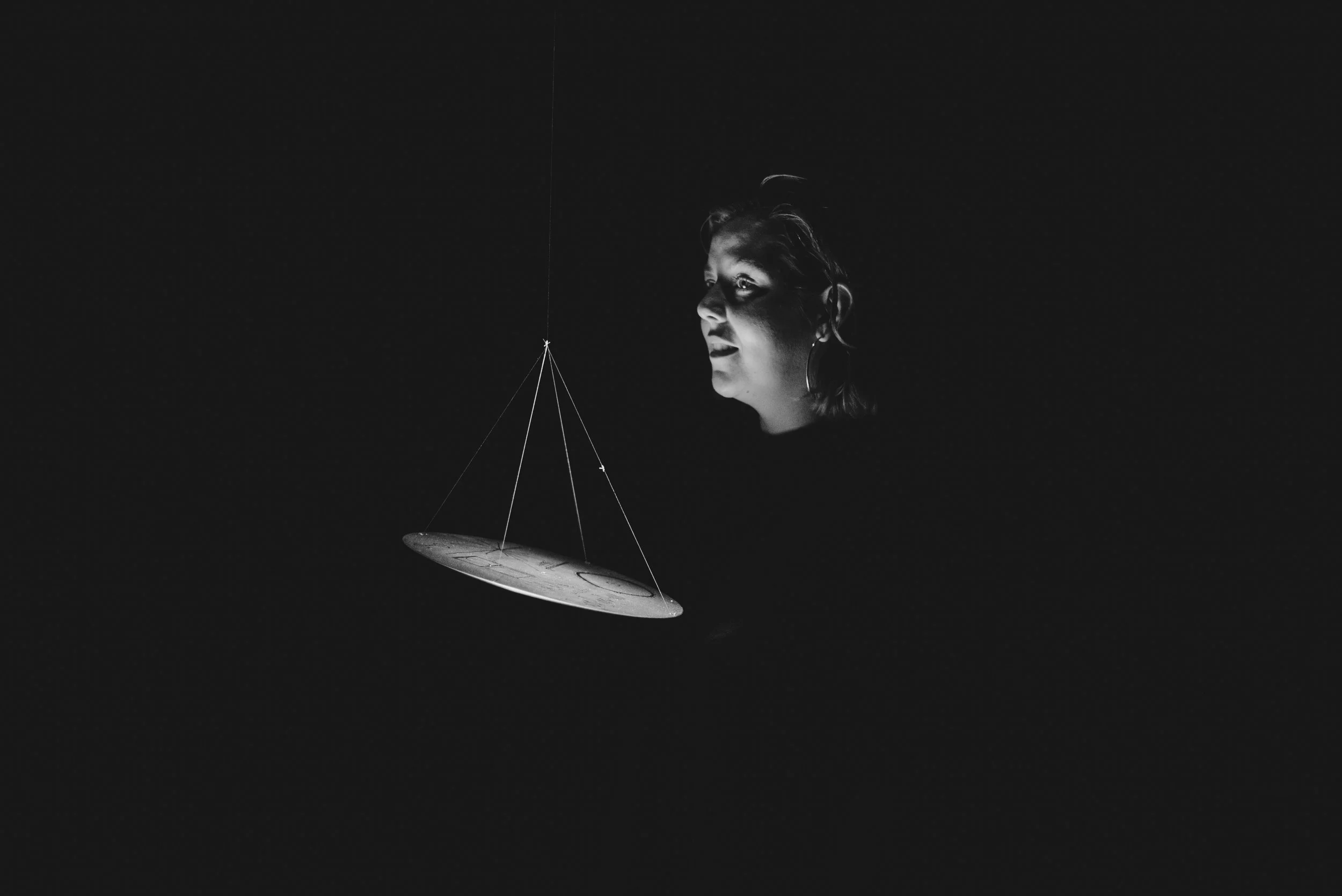SELKIE / noun / A creature of Gaelic mythology that exists as a seal in water, and can shed their sealskin to assume human form on land.
Night. A house by the sea. A woman stands, naked, wet, panicking, some kind of secretion all over her. A young man tries to calm her down, hand her a towel. He’s gentle and respectful. She is a Selkie who’s lost her seal skin and is unable to return to the sea without it.
Séan promises to help her look for it. Rónnad ends up staying. A predator is slowly domesticated. They fall in love, but she is a little odd, howling at weddings, laughing at funerals - the townspeople are suspicious of her, and while he genuinely loves her, her oddness starts to grate on him. She still can’t find her seal skin. She is torn - stay and look for it, with the only human who understands her but is increasingly hostile, or take the risk of leaving and never returning to the sea. With just the two of them on stage in a small seaside house, their story is claustrophobic and tense.
As time passes, their relationship coils tighter; a net closing in on them. At their most comfortable, the skin is discovered - he has been hiding it the whole time. The predator instincts are reawakened. The myth is broken. An act of extreme violence. She takes the skin. She leaves and doesn’t look back.
Selkie is a provocative work exploring this mythological other who is lost in a relationship where she is both owned and prized, her identity repressed in an attempt at assimilation.
Selkie takes you for a swim in a whirlpool of love, cultural exploitation, and domestic oppression.
Recommended for ages 15+
Photos by Cameron Etchells, of the premiere season.
More information:
Stories of Selkies are familiar to many of us. When I first read the myth as a child, I did so in the way it is when you fall in love – seeing only the magic. The idea of a strange woman from the ocean living amongst fishermen seemed so romantic. But when I re-read it, with an adult, critical, feminist lens, I saw more in it – the dark underbelly of the ‘real’ story. This captured faerie-creature now became a metaphor for keeping foreign, exoticised women captive as wives, or for the domestic oppression that keeps people trapped in toxic relationships. I was drawn to write this version of the selkie story because it is true. Statistics confirm (Australian Bureau of Statistics, 2012) that by their current or former partner:
· Nearly one Australian woman is killed each week.
· One in four Australian women have experienced emotional abuse.
· One in six have experienced physical or sexual violence.
Most of these women will never contact police about it. The World Health Organisation describes the levels of violence experienced by the world’s women as ‘a global public health problem of epidemic proportions, requiring urgent action’. This supposed myth is a reality for many people - and chances are, for you or someone you know. In myth or reality, there is always the hope that they too will find their seal skin, their courage, their hope, and be able to leave.
The script also deals with themes of cultural exploitation, domestic oppression, and the ‘civilising’ influence of an oppressor genuinely in love with the subject of their desire. A disconcerting insight into how we can unknowingly repress, exploit and manipulate those we genuinely care for, Selkie explores the complexity of untangling cultural relationships in a post-colonial landscape through the lens of a simple, poignant love story. I have received some extremely heartfelt responses from audience members about their personal experiences with this topic – including a woman who felt able to leave her partner after seeing the show, many women who had left relationships like this, and a few men who said they could recognise patterns of behaviour in themselves from the show, that they now feel is problematic and wish to change.
The exploration of cultural assimilation and civilisation will resonate with anyone who has felt like an outsider within the place they live.
The themes of ownership and constriction of intimate partners, loss of culture, the dehumanisation and attempted assimilation of ‘the other’ are themes that are important, urgent talking points in the news and the socially conscious conversation today.
Selkie is a dark, sometimes funny, feminist play about the tension between safety and freedom; between needing to be authentic and wanting to be safe. That tension is at the heart of the social and political zeitgeist. It intersects issues of culture, race and gender, making Selkie a pertinent work.
This work encourages audiences to think about diversity and the ‘othering’ effect that the dominant culture can have. It will feel like familiar territory to anyone who has been made to feel trapped or different, and deals with some of the less examined aspects of the post-colonial relationship.
Recommended for ages 15+
Form/Style: magic realism, drama, dangerous romance
Length in minutes: 50
Cast: 2 total
Roles: 1 female, 1 male (non-binary and trans friendly)
Themes: gender, culturally and linguistically diverse, women
Cast age groups: 18+
Audience age: adult
Publisher: Australian Script Centre
View and buy the script
Production history and details:
Written in 2014 with mentorship from award winning director Adam Mitchell through the 4x4 Australian Theatre for Young People mentorship program in Perth, Australia.
Development season at Hayman Theatre, Perth, Australia. By Curtin University students.
18-25 October 2015
Director: Sean Guastavino
Featuring: Jessica Nyanda Moyle and Tristan McInnes
Stage Manager: Kane Parker
Set design: Jess Fowles
Lighting design: Mai Han
Costume design: Shan Gabriel
Sound design: Alex Yell and Shanae Tuxford
Premiere season with Renegade Productions at The Blue Room Theatre 12 - 30 April 2016, Perth Australia.
Renegade Productions and The Blue Room Theatre
Director: Joe Lui
Set & Costume Design: Cherish Marrington
Choreographer: Laura Boynes
Sound & Lighting Design: Joe Lui
Producer: Harriet Roberts
Stage Manager Meabh Walton
Performed by Paul Grabovac, Ella Hetherington, Kynan Hughes and Yilin Kong (please note the script calls for 2 performers, this production made use of doubling the actors with dancers.)
Download reviews here.
Production video available on request.
Interview with director Joe Lui.
Second season at the Women in Theatre and Screen’s inaugural Festival Fatale at the Eternity Playhouse in Sydney, Australia. 29 - 30 October 2016
Production by Golden Jam productions.
Co-produced by Nicola James and Amy Morcom
Directed by Nicola James
Lighting design by Daniel Barber
Sound Design by Danielle O'Keef
Animation by Tara J E Brown
Performed by Sarah de Possesse and Jordan Gallaway
This event was the only one in the festival to sell out.





































































































